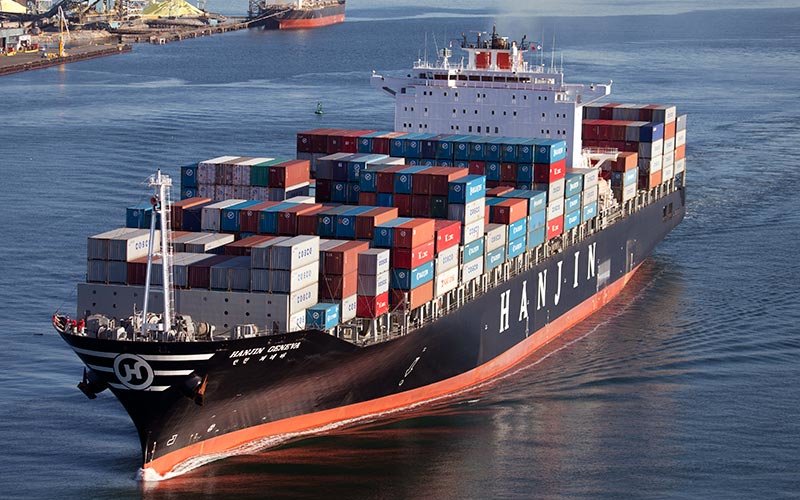
When the Hanjin Shipping Company — one of the largest shipping companies in the world — filed for bankruptcy last month, it set off a chain reaction of events affecting manufacturing and global trade to retail supply and demand.
“The Hanjin Shipping incident teaches us two things: the importance of supply chain management and the need for ethical management,” says Min Choi, assistant professor of management at Cal State Fullerton.
“In Korea alone, large companies such as Samsung, LG, Kia and Hyundai are unable to ship their products to North America,” adds the researcher. “Worldwide, there are more than 8,300 shippers influenced by this incident and about 400,000 TEU (Twenty Foot Equivalent Unit – unit of cargo capacity) worth of containers are stranded aboard the ships.”
The value of those goods that are not being distributed, Choi notes, “is easily $14 billion.”
The ramifications are already being felt at terminals, where full containers wait to be shipped while empty ones wait to be picked up. Manufacturing plants around the world wait for parts to complete their products and retail outlets wait for products to put on store shelves.
The one thing that the incident has spawned is plenty of teaching moments, especially for educators who are using the company’s bankruptcy as a learning tool.
“This incident teaches us that, even when you have a great product markets want, having a bad supply chain could really hurt your business,” explains Choi, who has studied supply management, retailing, food distribution and sustainability issues.
“How can we prevent this kind of problem happening again in the future? I think we need to start from our classrooms,” says Choi, a member of the Council of Supply Chain Management Professionals and the Decision Science Institute.